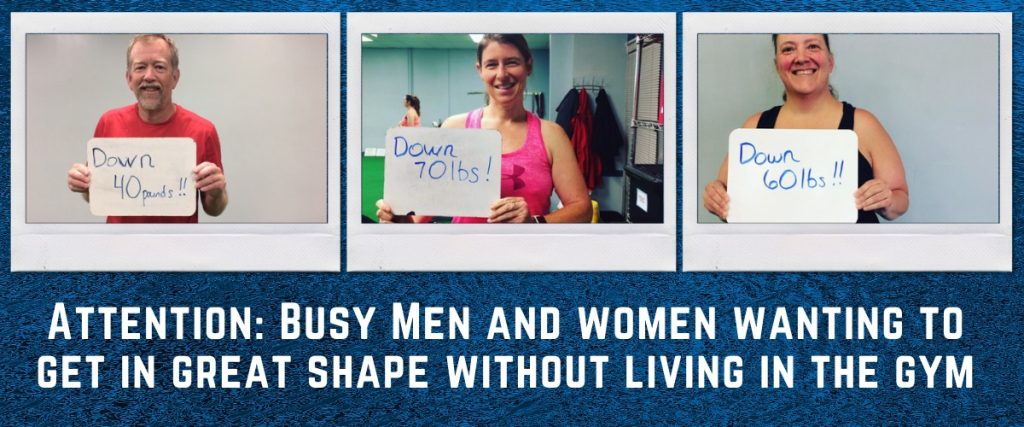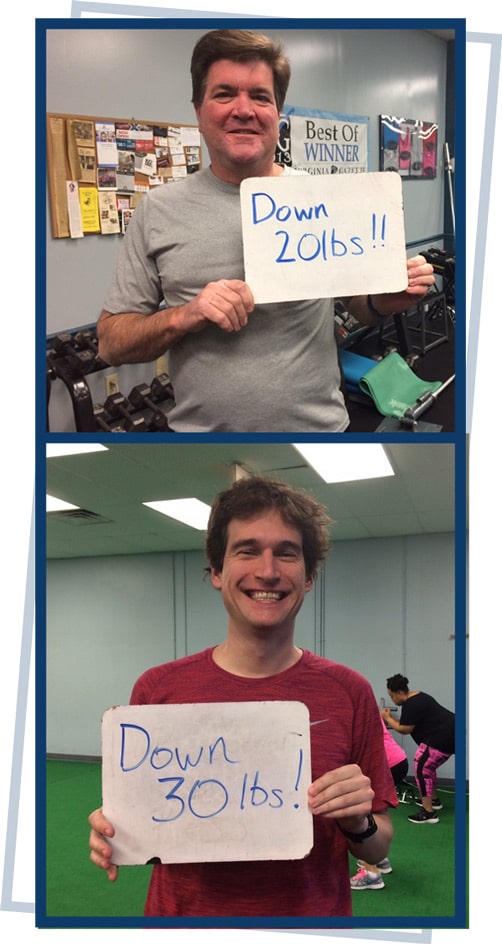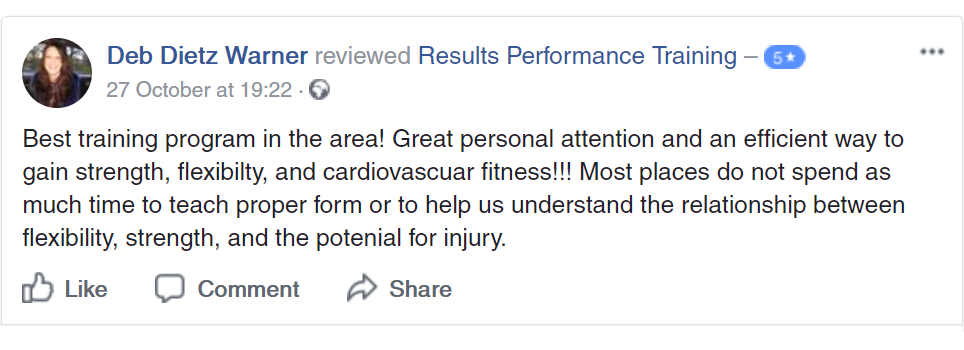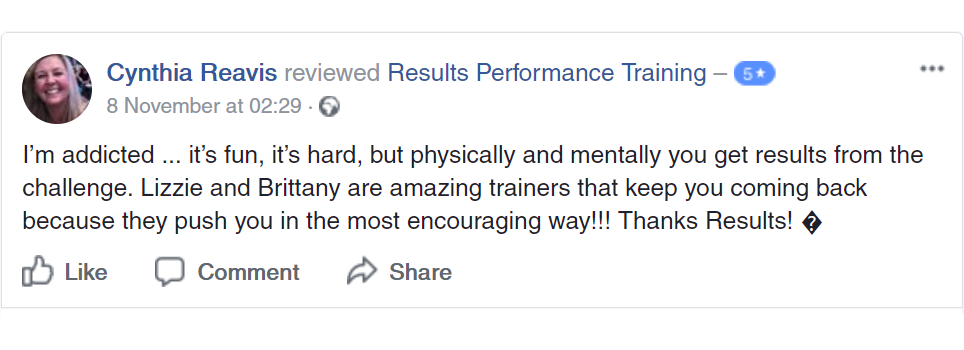Transformation Fat Loss

Do you want to Look and Feel Great ? Do you want fitness to fit into your busy life?
Results Performance Training is perfect for those who…
- Need accountability and guidance that big gyms can not provide.
- Tired of unqualified personal trainers, that lack experience.
- Tired of overcrowded group classes that don’t provide the attention you need.
- Tired of pushy sales tactics used by big gyms.
Don't just take our word for it, see what our members have said...
Stop Saying, "I Will Start Tomorrow". Pick Up The Phone & Take Action Today. Get Your Free Week Of Coaching With Us!
Call or Text ("Free Trial Week")
757-589-7028

Does it feel like you have tried everything? And have nothing to show for it? If you are serious about getting results, you are in the right place. You are here because fitness means more than 6 pack abs. Fitness means …..
- Keeping up with your kids and grand-kids.
- Getting off medication.
- Removing minor aches and pains, so you can move without pain.
- Preventing weight gain, and strength/balance loss, that comes with ageing if you do nothing fitting back into your clothes.
- Having the confidence to book that vacation, knowing you will enjoy it, without holding your family back.
- Being healthy enough to enjoy the precious moments that life has to offer.
- Getting back to, or still being able to, enjoy your favorite activities (golf? gardening? biking?).
- Having the energy to attack goals that are not fitness related.
SOME OF OUR PROVEN SUCCESS STORIES…

Detric Smith, Owner of Results Performance Training
BS Kinesiology from VCU
Author
American College of Sports Medicine Exercise Physiologist
Precision Nutrition Level 1 Coach
NSCA Certified Strength and Conditioning Specialist and Personal Trainer

3 STEPS TO IMPROVED FITNESS LEVELS
Get A Customized Workout That Changes When You Do
Choose Type Of Training: 1 on 1, Group, Semi-private, or Online Coaching
Get Your Diet Right! Customized Plans For You
WE ARE GOING TO PROVIDE YOU WITH…
Customized workouts based on your goals, schedule, budget, previous exercise history, injury history, and much more! After we talk we will know which program is the best fit for you!
We offer group personal training, semi-private training, personal training, and online coaching.
Customized Nutrition – I do not expect you to eat like a bodybuilder to reach your goals. You don’t have to! The truth is , those plans do not work long term. We take you from A to B to C, not A to Z back to A again. Our plans get results, that last. They are not fad diets. Even if you travel, not the best cook, you can follow our plans. You will be able to enjoy a night out with friends, and still reach your fitness goals. Remember, we make fitness a part of your life. This is why our members get results that last.
WE PROVIDE ACCOUNTABILITY! – When work and life get busy , who tells you to go to the gym now? This might be the biggest difference maker! The truth is, big gyms make money from signing you on for long contracts. They don’t expect you to show, they will not be checking on you when you miss.
You are not a good fit if you are looking for overnight results. If you are not willing to put in the work . If you quit the second things get rough. BUT if you can follow 2-4 efficient , FUN, workouts per week. And follow some guidelines we give you for off days. You will get results! That is a promise! Check out what our members have to say below…..
If you are ready to improve your body, which will improve every area of your life, fill out the form below to schedule your FREE ONE ON ONE CONSULTATION TRIAL WEEK+ DISCOVERY CALL
Contact us Today for your Free consultation to learn more!
757-589-7028 (text or call) or email resultsperformancetraining@





